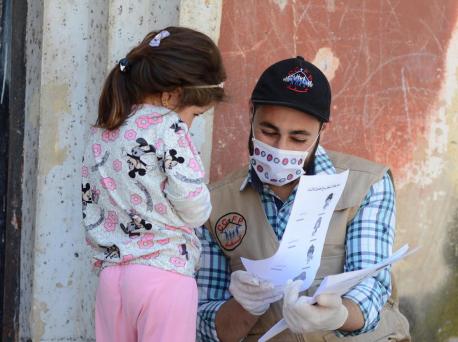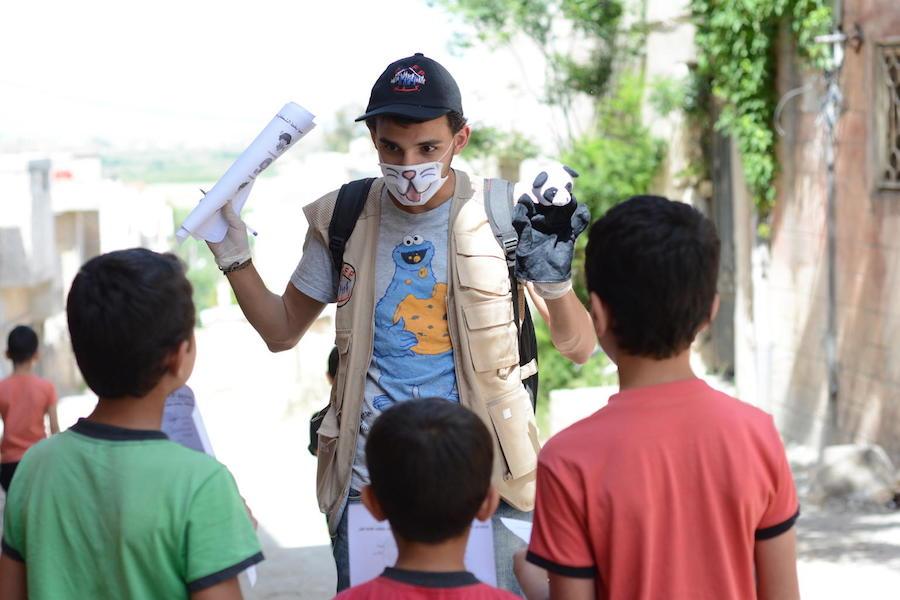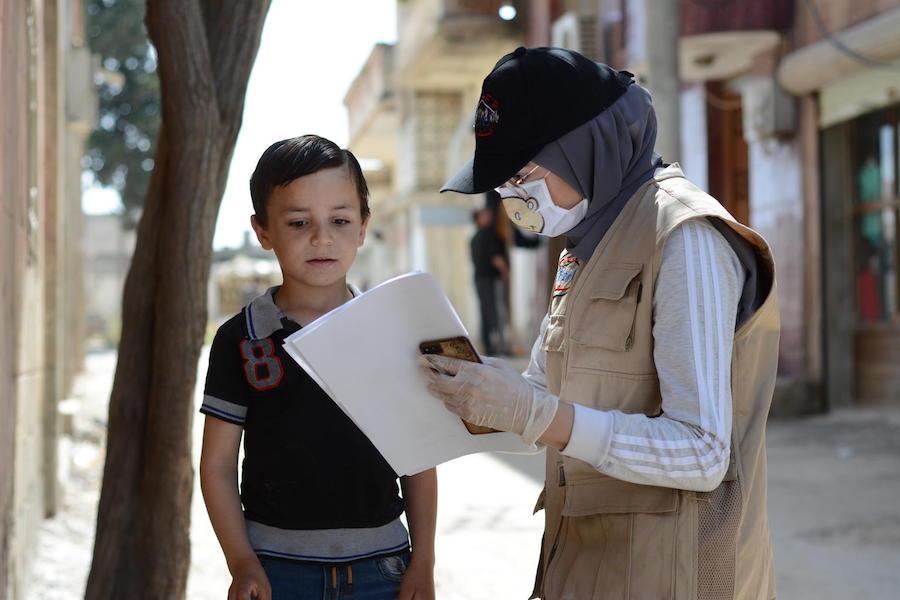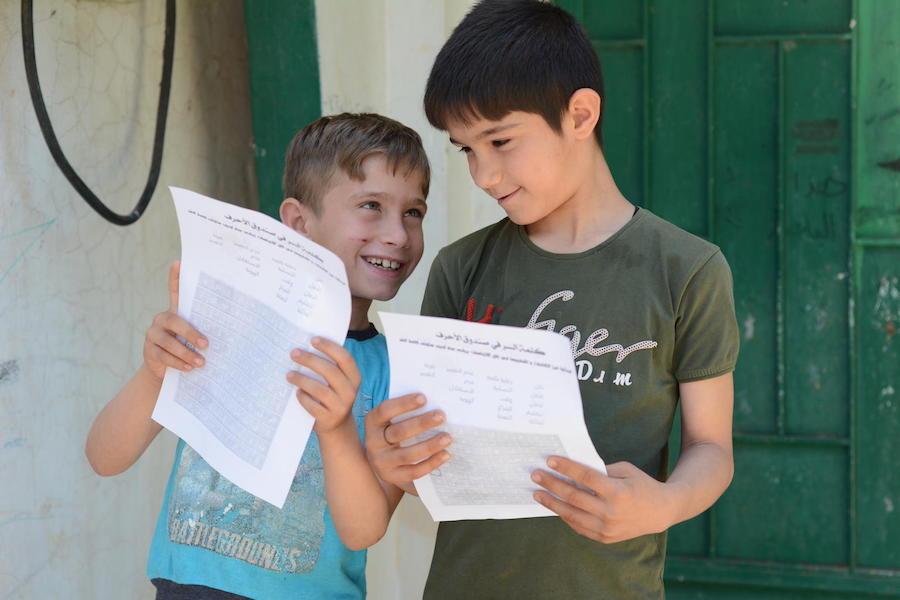
Bringing Joy and COVID Health Information to Children in Syria
HOMS, SYRIA — In the war-ravaged village of Teir-Ma'aleh in rural northern Homs, children were barely recovering after years of conflict and displacement when a new challenge emerged. The global spread of COVID-19 forced them to stay home from school, away from their friends and loved ones. The UNICEF-supported Child-Friendly Spaces where they used to play and learn also closed, compounding their vulnerability.
"They had felt a brief glimpse of normality restored into their lives, being able to go to school and play with their friends in the street just like children around the world," explains Salam, 25 (below), a UNICEF volunteer. "Then COVID-19 emerged, forcing them to give up these things again."

Salam, a mechanical engineer, now leads a team of four young volunteers who have taken it upon themselves to bring back happiness to the children in the village. They are part of a UNICEF-supported network of child protection mobile teams helping children in the governate of Homs cope with the difficulties of life during the COVID-19 shutdown.
"We are trying to bring to their homes the psychosocial support and child protection activities they would have participated in at the center if it werent for the lockdown," he adds.

"We are helping them use the long time they spend at home doing something unusual, fun and educational all at the same time," adds Aya, 24 (above), a medical student and member of the volunteer team.
To that end, the team of young volunteers write stories, compose songs and create fun activities, all centered around child rights, precautionary measures to protect against COVID-19 and mine risk education. The team records them on their phones and goes door-to-door to share them with children by sending the recordings via Bluetooth to parents' phones, along with printouts. A few days later, the team visits the children again to discuss the materials and provide them with new stories and activities.

"We expected children to better engage with voices, but we were thrilled to see how excited they were," says Aya, who recorded many songs with her beautiful singing voice. "They listened to the recordings so many times that they could identify us by our voices on the second day."
Osama, 22, is another team member who volunteered to cheer up children in his hometown, Teir-Ma'aleh. "Children here had already been through so much and they still live without basic services," he says. "The last thing they need was to be forced to be away from school and their friends."
Since the home visits began in late May, children and parents knock on Osama's door almost every day, asking when the team will visit their neighborhood. "I'm overwhelmed to see how happy children and parents are with what we're doing," Osama adds, with a big smile. "We've succeeded in helping ease some of the pressure they are under."
Help UNICEF be there for vulnerable children around the world. Your support is urgently needed.
Read how one brave mother is fighting to keep her children alive during Syria's brutal civil war here.
Top photo: On May 14, 2020, UNICEF-supported volunteer Osama goes door-to-door providing educational activities and COVID-19 prevention information for out-of-school children in rural northern Homs, Syria. © UNICEF/UNI345341/Aldroub


